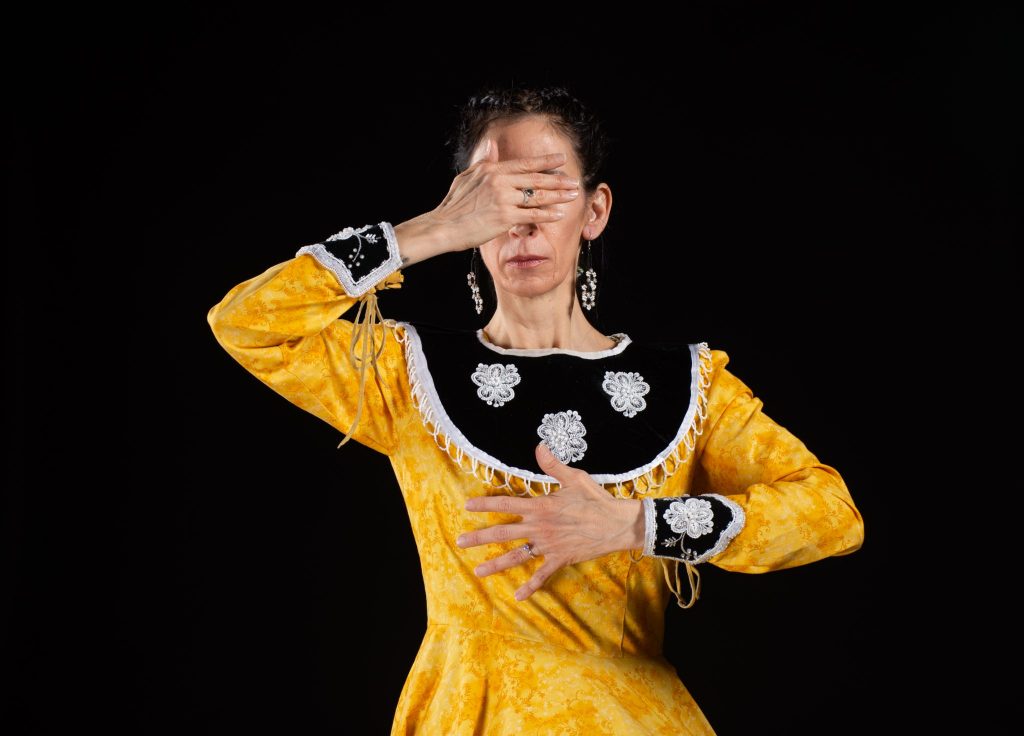Celebrating Dance Through Cultural Backgrounds
I don’t remember a time when I wasn’t dancing.
I lived in Kahnawake, Quebec in my early years, but then moved to Nova Scotia at a young age. I would always dance around the house and eventually started taking my first “official” classes in classical ballet, which I studied for many years. Growing up on a farm in a small village, I had very little access to dance and limited contact with my Mohawk community. Seeming highly unlikely that I could ever become a professional dancer with such limited resources, I stepped away for a while and decided to go into theatre. This brought me to study at Concordia University in Montreal, amazed and overwhelmed by the vibrant performing arts scene here.
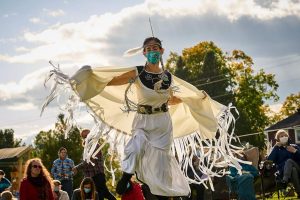
Barbara Kaneratonni Diabo © Pierre Tran
Ever curious, I started discovering and taking classes in all different kinds of dance that I had never even heard of before – contemporary…what was that?!? But perhaps more importantly, I reconnected with my Mohawk community of Kahnawake, where I taught theatre at their high school. I also started to learn about my cultural dances and this changed my life completely.
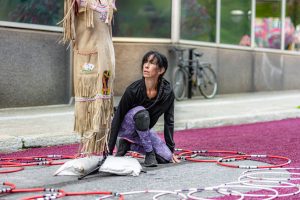
Barbara Kaneratonni Diabo © Romain Lorraine
Indigenous perspectives and practice of dance are so much more holistic, integrated into the community, inclusive, and have always been about so much more than just giving a show. These dances were for healing, honouring, spirituality, respecting the Earth, for community, ancestors, future generations, and for those who can’t dance. With time, I learned how to integrate these values into all my dance forms. Along with this, I accepted a responsibility to try to help my community with my dances and choreographies, as well as educate the general public about Indigenous people. I work with many organizations in Quebec and across Canada to educate about Indigenous people and to support them.
Eventually, with much help from good people, I was able to start my own dance company A’nó:wara Dance Theatre which is not only a place to create my productions but is growing to be a support for other Indigenous artists as well.
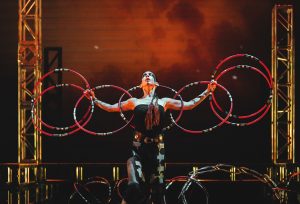
Barbara Kaneratonni Diabo dans Sky Dancers © Brian Medina
I believe that it is important for everyone to support Indigenous arts, and that building these cultural bridges will benefit all to have a more equal and diverse society. Let’s keep dancing!
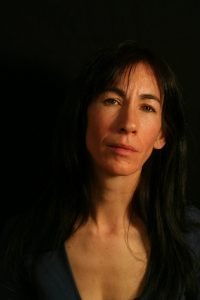
Barbara Kaneratonni Diabo © Emily Smith
Barbara Kaneratonni Diabo is the Artistic director and choreographer of A’nó:wara Dance Theatre.


